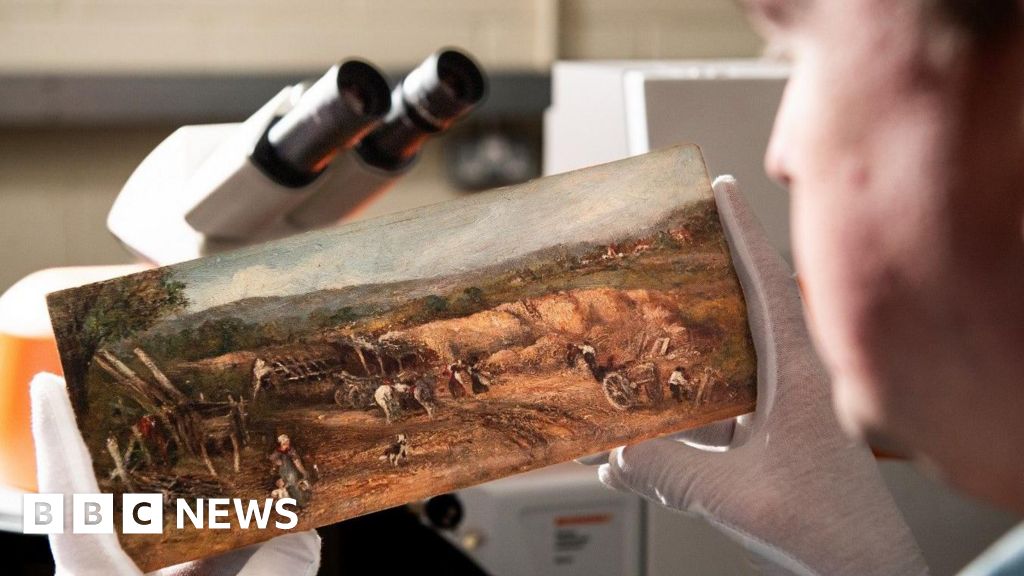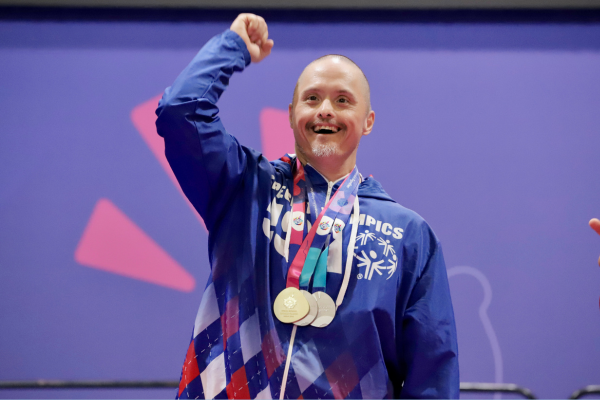- Fri. Apr 26th, 2024
Latest Post
5-HTP Active Ingredient Can Improve Symptoms of Irritable Bowel Syndrome
5-HTP, derived from medicinal herbs originating from Africa, has been shown to help improve symptoms of irritable bowel syndrome, also known as spastic colon. The active ingredient, 5-hydroxytryptophan (5-HTP), is…
John Constable: The Link Between Art and Technology in the 19th Century
Scientists at the University of Bradford are utilizing groundbreaking new methods to determine if three newly discovered paintings may have been created by John Constable, a renowned 19th-Century artist known…
Kaufmann named finalist for 2024 Presidential Awards for Excellence in Mathematics and Science Teaching | Local News, Sports, and Employment opportunities
Two Iowa educators have been named as 2024 finalists in the Presidential Awards for Excellence in Mathematics and Science Teaching by the Iowa Department of Education. The finalists this year…
Exploring Alaska’s Sports History: Induction into the Alaska Sports Hall of Fame
Eagle River’s multi-sport athlete Bobby Hill will be inducted into the Alaska Sports Hall of Fame on April 30. Harlow Robinson, the executive director of Healthy Futures and the Alaska…
New Exhibit at Functional Fabric Fair Showcases Cutting-Edge NASA Technology in Fabrics
Functional Fabric Fair, powered by PERFORMANCE DAYS, concluded another successful show at the Oregon Convention Center in Portland, Ore from April 17-18. The event attracted 2,100 attendees and featured over…
What is it about broccoli that kids don’t enjoy?
Leo Outamaa, 11, and Broccoli have differing opinions on the vegetable. Even some adults don’t like broccoli, with one former president of the United States, George H.W. Bush, publicly naming…
Collaboration Between Scientists and Comedians Aims to Raise Awareness About Climate Crisis
Scientists who are working to convey the urgency of the climate crisis to the general public often face challenges in getting their message across in a way that is easily…
Beans are beneficial for gut health
Beans are a rich source of fiber, vitamins, and minerals that support a healthy intestinal microbiome, decreasing the risk of colon cancer. A 2022 meta-analysis conducted by Florida State University…
COO Appointed by Washington Technology Industry Association | News
The Washington Technology Industry Association recently named Kelly Fukai as its chief operating officer, reporting to CEO Michael Schutzler. Fukai, who previously served as vice president of government and community…
Six Quarterbacks Selected in First Round Matches NFL Record
In a historic turn of events, the first round of the draft saw quarterbacks being selected at a remarkable pace. The trend started with the Broncos picking former Oregon quarterback…




